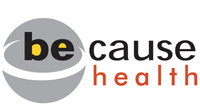SESSION B: The POWER of KNOWING
Training practices for healthcare professionals combining innovation and tried and tested methods with a view to making teams more independent
- Organisers: Fracarita Belgium, Institute of Tropical Medecine (ITM), Medics Without Vacation, ULB Coopération
- Language of the session: French (no translation)
- Moderator: Anne Fromont, School of Public Health, ULB
This panel will debate experiences with training in the healthcare sector in general, including training of trainers and lessons learned from projects carried out in DR Congo, Rwanda and in Guinea Conakry. To address the problems associated with the poor quality basic training of healthcare providers and a lack of certain specialist areas in the formal education system, this workshop intends to explore best practices for improving the skill sets of medical healthcare providers with effective training methods which are tried and tested but also innovative, such as digital tools. We will be discussing the passing on of know-how (knowledge, how to be, what to do as well as practical skills), which will encourage teams to be independent with long-lasting results. The models presented will aim to boost the quality of care in particular but also to strengthen human resources in healthcare by looking at levels of motivation and satisfaction in the workplace as well as developing a professional identity.
The common thread running through our panel is the model of the active participant who considers the professional as a stakeholder with skills, experience, resources and needs and plays an active role during training.
Three experienced trainers will be talking about their own experiences and visions regarding the main difficulties they have encountered such as, for example, the gap between high-level technical skills and the limited pedagogical skills of many trainers. A presentation of the strengths and weaknesses of distance learning and attendance-based courses will also be covered.
SESSION PROGRAMME
- Improving mental health in the Great Lakes region by improving the skills of nursing staff
Roland De Bruyne, Trainer, Fracarita Belgium & Medics Without Vacation
A programme aimed at boosting the skills of nursing staff in mental health using a ‘train the trainer’ approach began in 2014, as part of a programme financed by Belgian Development Cooperation and including efforts from Fracarita Belgium and Medics without Vacation by building staffing capacity in the region’s psychiatric hospitals. Local and international experts train one nursing ‘coach’ per hospital who in turn passes on the knowledge and skills to his/her nursing colleagues using ‘on the job’ training.
The approach, the methodology, the results obtained, lessons learned and constant challenges of such an approach will be presented and discussed during the panel discussion.
- In the context of deeply insufficient basic training, what strategy should be used to enable the plethora of Congolese healthcare providers to look after patients properly?
Dr. Prudence Mitangala Ndeba, Technical Assistant, Project in Support of Developing Healthcare Systems (French acronym: PADISS), North Kivu (DR Congo)
The diagnosis explained as part of designing the new health development plan 2016-2020 in the DRC highlights the low quality of services and healthcare on offer due to, in part, too many staff members, who are poorly trained, with sometimes questionable skills and generally poorly allocated and lacking in motivation. With a view to partially answering this question, thanks to financing from the EU and Belgian Cooperation (DGD), ULB-Coopération introduced a capacity-building project for clinicians and healthcare providers to improve the level of service in gynaecology-obstetrics in North Kivu. The results and lessons learned will be presented as well as a new project aimed at setting up a training centre to train trainers and offer continuing training to healthcare personnel in North Kivu.
- Improving training for healthcare professionals through online courses in Guinea-Conakry
Jean Michel Kolié, National Rural Health Training and Research Centre in Maferinyah, Guinea-Conakry
Three online courses on HIV treatment, primary healthcare and the management of sexual and reproductive healthcare services were launched in 2017-2018 in Guinea as part of a joint scientific project between the National Rural Health Training and Research Centre in Maferinyah and the Institute of Tropical Medicine (ITM) in Antwerp (Belgium), with support from the Belgian Development Cooperation 5DGD and Enabel).
The development and roll-out procedures and lessons learned from the first cohorts of students will be presented and discussed during the panel.
- Q&A
